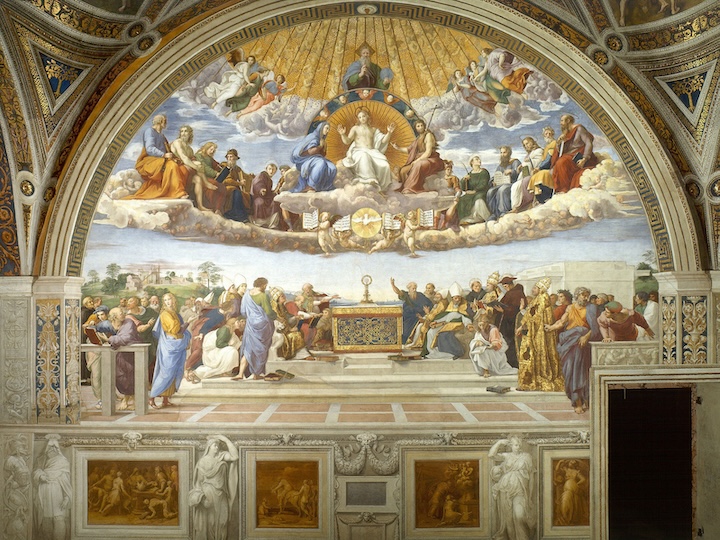The beginning of the new year is a time for looking back on the recently completed revolution around the sun, taking stock of what was, both good and bad, and for making resolutions about what might be done better or at least differently on our next lap.
In my experience, the freshness of the new year has a way of coloring one’s outlook with a tinge of optimism. In my experience, too, that optimism rarely lingers as long as Ash Wednesday. The optimism of early January rarely even makes it to February intact. By the start of Lent, I’m good and ready for some penance.
For all this, January is also a good time for prognostications. Now is as good a time as any to anticipate what 2024 will bring – either good or bad – so that we can be as prepared as possible for what comes. And so that next January we can look back at our predictions and laugh at our past selves for being overly hopeful or unnecessarily worried about all the wrong things.
So, it is in a spirit of preemptive self-deprecation that I submit the following three prognostications for this, the year of Our Lord, 2024.
First, as you may be aware, we are once again in an election year. National elections in the United States, and especially presidential elections, have become mass exercises in fear and loathing. Fear, in that this latest episode of “the most important election ever” has both sides convinced that the stakes are both existentially high and nearly hopeless. Everyone is terrified their side is going to lose and everyone seems convinced that the Republic is doomed if they do. Loathing, in that everyone in both parties seems to dislike their own side only slightly less than they loathe the barbarians across the aisle.
At least it sometimes seems like “everyone.” I am not one to downplay the importance of politics – even when, and perhaps especially when, our politics seem so broken. Nor am I one to downplay the gravity of the challenges we face, which long ago shifted from questions about the best means to achieve our common goals to profound disagreements about the very nature and purposes of human beings – and therefore of human society itself.
History, as Pope John Paul II reminded us, has demonstrated that even democracies can transform into open or thinly disguised totalitarianism if they lack adequate moral and philosophical foundations. It is possible to insist, both, that such a danger is real, even that the process is well underway, and, also, that we are a long way from reaching a critical point of no return. “Theories of decline” are not very helpful as “theories of hitting bottom,” except in hindsight.

Anyway, here’s my first prediction: 2024 will be a rough year politically, the worst fears of both left and right will not be realized, and on Inauguration Day 2025, the person who takes the oath of office as President of the United States will be the oldest person ever to do so.
Speaking of elections, this election will be the first presidential contest since the overturning of Roe vs. Wade. By now, I think everyone understands that abortion politics are not going away any time soon. But the place of abortion in American politics has transformed since the Dobbs ruling. There is, and will continue to be, less focus on the politics of getting the right combinations of judges on the Supreme Court and much more focus on state abortion laws.
What I want to focus on here is the way Catholic bishops, both individually and collectively, engage politics in a post-Roe world. Abortion remains a major emphasis for the bishops. Indeed, with none of the contentiousness we have seen in recent years, the bishops reaffirmed their position: the threat of abortion remains their “preeminent priority.” For almost half a century, that meant first and foremost overturning Roe.
The truth is that, while none of the bishops would wish it back into existence, Roe did have a concentrating and galvanizing effect, both ecclesially and politically. Overturning Roe was a clear, achievable, and just goal. With Roe gone, the abortion threat remains no less grave or urgent, but as a political question for Catholics, the issue now takes on a more diffuse character.
The coming year will give us a first look at an emerging “new status quo” for episcopal engagement in presidential politics. Catholics will be watching their bishops carefully, and the bishops will be watching one another, too. This, combined with a general antipathy most bishops feel toward both the current president and the most likely Republican nominee, Donald Trump, I predict a rather subdued year for episcopal engagement in politics.
My third prognostication: The National Eucharistic Congress may be the last, best hope for synodality to take hold in the United States. Last October’s Synod on Synodality did not set many hearts ablaze. A recent missive from the USCCB asking dioceses to host another round of synod listening sessions was not exactly met with enthusiasm. The controversies over Fiducia supplicans have done the synod no favors, either, seeming to short-circuit or even contradict the vision of synodality Pope Francis has so long been urging.
So how might a gathering of 70,000 Catholics in Indianapolis reinvigorate synodality? By bringing tens upon tens of thousands of Catholics from around the nation together to listen to the word of God and adore the Lord. To the degree the Congress succeeds in creating a sense of fraternity and communion, creating a sense of vital participation in the life of the Church, and plants in the participants a seed of missionary zeal, the Eucharistic Congress will have advanced the mission of the Church in America in a way that no synod gathering in Rome ever could. That would be a huge win for the Church in the United States and for synodality; I like to think Rome would agree.















